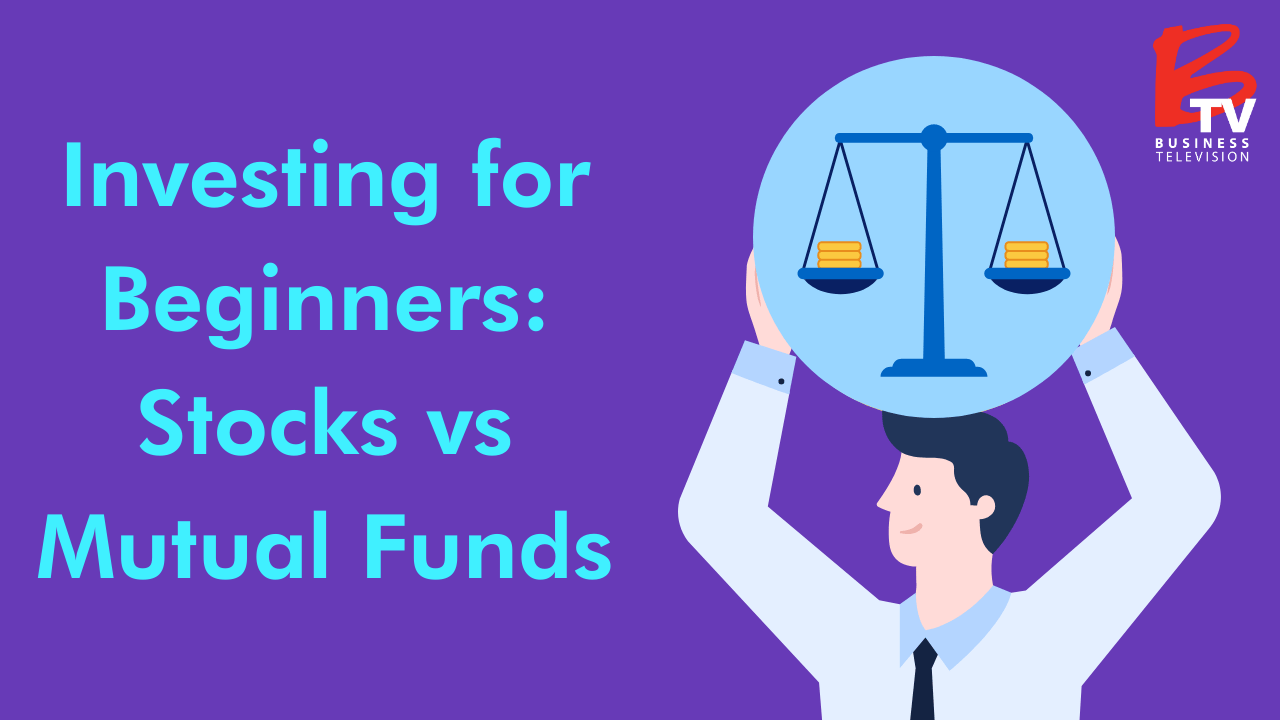Investing for Beginners: Stocks vs Mutual Funds
For any beginner investor, understanding the variations between different types of investments is a necessary step. But you may still be confused abou …

For any beginner investor, understanding the variations between different types of investments is a necessary step. But you may still be confused about the difference between stocks and mutual funds.
Stocks and mutual funds have experienced tremendous growth year by year as investment options and form the base for a healthy and diversified portfolio. In this article, you will learn everything you need to know about stocks and mutual funds.
Individual stocks
Many investors usually start off their investment journey with individual stocks. This is because they allow complete control over the portfolio, can present high liquidity and change no ongoing fees.
However, these advantages can demand extra work. Investors have to do their own market research, administration and inventory management. Also, consider the time spent on making your investment work. While all the profit is yours, so will be the eventual losses.
Mutual funds
Funds, on the other hand, are professionally managed investment pools that, to some extent, show the performance of several varied securities like stocks and bonds.
professionally managed investment pools that, to some extent, show the performance of several varied securities like stocks and bonds.
Because it’s a fund, there is an expert manager on the subject, who chooses which stocks come or go. If you trust the trades the fund chooses, then the performance will match the price range of the shares the fund is positioned on.
Usually, funds don’t have the same growth potential as stocks. Most of the time the value of mutual funds are calculated once a day. It’s also based on what the funds’ current net asset is. The return on investment is divided among all investors, as well as the loss, based on their proportion.
What stocks and stock mutual funds have in common:
What these two modalities have in common is that when buying a company’s stock, the shareholder becomes a partner in it. Thus, the investor’s stock grows as the company continues to appreciate in the market.
In the case of stocks and stock funds, the appreciation of securities in the market brings profit on future sales higher than the original starting price.
Stock funds, in turn, are divided into shares. Investors acquire stocks and represent fractions of the portfolio of assets they hold. This means the increase in share value is reflected in the increase in shares. In short, both stocks and mutual funds pay dividends and lead to capital gains.
The differences between stocks and stock mutual funds
The main difference between stocks and funds is that stocks are units that represent a company’s ownership. Funds, on the other hand, are investments that run professionally. They consist of a pool of funds collected from many investors who share similar investment objectives. In addition, while the stocks of a listed company are traded through a stock exchange, a mutual fund is a separate unit managed by a fund manager.
A number of investors with similar goals come together in a mutual fund. While investing in stocks is an individual activity. However, the general objectives of both are to contribute to the appreciation of the investor’s wealth.
How to choose a mutual fund
Most investors choose mutual funds based on the fund’s recent performance, a friend’s suggestion or praise by a financial specialist or fund rating agency. Although using these methods can lead you to select a quality fund, make sure you do your part of the research as well.
Past results are good indicators, but not a guarantee that a fund will do well. Stay aligned with the fund’s strategies and your own goals. If you are investing for the long-term, history will be more important rather than in a short-term situation.
Diversifying your portfolio
Even though direct stocks or stock funds are interesting options, it’s important to balance your investments. If there are months when suddenly an investment is not doing so well, other assets in your portfolio could balance the impact.
Costs and fees with mutual funds
The most common rates are management and performance fees, both discounted directly from the returns. Management fees relate to the funds’ remuneration and costs, while the performance fees will be whenever the fund exceeds its benchmark.
However, it is important to look at the net fund performance of these rates. It’s not uncommon to find funds that charge these fees but deliver very interesting results.
There’s no right or wrong
Having shares directly on the stock market does not extinguish the possibility of having a stock fund and vice versa, as long as the risk percentage makes sense for your investment strategy and investor profile. However, not all people have the time and knowledge to track a stock portfolio independently.
Among other very interesting possibilities, stock funds can make this mission simpler and even cheaper, as today there are options for low-end equity funds that could help build a robust and diversified portfolio.
If you enjoyed this content, remember to “Like” and “Follow” us on the links below to receive more investment tips for beginners!
Newsletter | Facebook | Instagram | Youtube | Twitter| LinkedIn | B-TV.com
You’ll also receive stock market data and updates, company profiles and the largest library of CEO interviews in North America.
Latest Articles
Hot Companies
You might also like

BTV Showcases Contango Ore, Critical Elements Lithium, Dryden Gold, FireFox Gold, Kirkland Lake, Klondike Gold, and Selkirk Mines
This week, BTV - Business Television we feature growth-focused mining companies advancing major projects across North America and Europe. From emerging producers and strategic combinations to high-grade exploration and critical mineral development, this episode highlights the next wave of opportunity in the resource sector, including:

Selkirk Copper: A Yukon restart positioned to deliver new Canadian copper supply by 2028
A 50,000-metre drill program began last summer to expand understanding of the resource and guide updated mine design. The goal is to define a 12–15 year mine life while refreshing permits and engineering.




